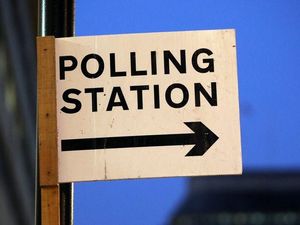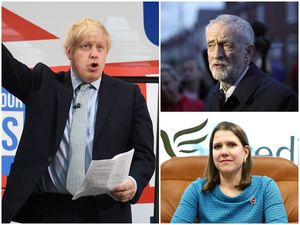Nigel Hastilow: Facebook scandal is a lot of fuss about nothing
The row over ‘data farming’ and its possible impact on the democratic process is the price we are paying for showing off, says Nigel Hastilow.

Why all this fuss about companies using data from Facebook to target American voters with advertisements promoting Donald Trump in the US Presidential elections and Brexit in our referendum?
Facebook makes all its billions out of using our personal profiles to capture information about our ages, interests and occupations to sell us stuff we never knew we wanted.
The only difference between the Cambridge Analytica ‘scandal’ and Facebook’s usual activities is that the end result may have been the elevation of The Donald rather than Hillary Clinton to the White House and Britain leaving the EU rather than remaining.
Facebook and political consultancy Cambridge Analytica’s ‘data farming’ activities would be much the same if they were trying to flog us ice cream.
It’s the possible outcome of this activity - democratic decisions the intelligentsia doesn’t like - that has created such a fuss.
Facebook, Google, Apple and other rogue companies are dedicated to learning everything they can about us in order to exploit us for commercial gain.
They wouldn’t survive otherwise. It’s why Facebook and Google are free to use. With all the information they have, Facebook generates advertising revenue of £28 billion while Google sucks up a staggering £68 billion.

Every time someone posts a picture of a fluffy kitten or something from their exotic holiday, it’s taken down and used against us.
It’s the price we pay for showing off. After all, Facebook doesn’t do much more than pander to our vanity, allowing users to brag about what wonderful lives we want the rest of the world to think we lead.
Google, likewise, collects all the information about the products and services we search the internet for and then throws them back at us in the form of advertisements.
After I turned 60, I got loads of Facebook ads for funeral services (nice). And after I searched for Lego on Google before Christmas, looking for a present for a child, ads for the toys keep turning up on unrelated websites whether I want them or not.
Admittedly the activities of Cambridge Analytica are not entirely straightforward. The company may or may not have misused data on 50 million Americans obtained from Facebook.
But if, as the chief executive Alexander Nix said but now denies, the company uses even dodgier methods such as hiring beautiful Ukrainian prostitutes to help swing elections, there is no reason to have a lot of faith in it.
Yet there is no evidence Cambridge Analytica actually affected the outcome of the US election any more than there is that Russian internet trolls managed to swing it for Trump.
Nor is there a shred of evidence the hundreds of thousands spent with a Canadian company which may or may not have links to Cambridge Analytica made the slightest difference to the Brexit decision.
The all-purpose outrage at everyone from Mark Zuckerberg, the Facebook boss, to Stephen Parkinson, a Brexit campaigner now aide to Theresa May, is fuelled by the fury of the losers in the US and the UK.
They cannot believe people would vote in a way they disapprove of, so there must be something nefarious going on.
It may not be as blatant as vote-rigging, stuffing ballot boxes or jailing the opposition - the tactics favoured by genuinely anti-democratic dictators like the newly re-elected Vlad Putin in Russia.
But what we have here is a modern, internet-based version of the dirty tricks departments politicians have always deployed in their attempts to win and hang onto power.
They may have some impact - though it has to be asked whether the US Democrats or our Remainers were whiter than white.
Outrage and blanket coverage in left-wing media like the BBC and the Guardian is so hyped-up because the beneficiaries were causes they wholeheartedly loathe.
Of course, if using social media data were able to sway the votes of only a couple of percent of voters, it could be enough to change the outcome.
But in the end, it is just another form of advertising. Most of us find internet ads so irritating we deliberately ignore them.
It is true that advertising does work - why else would companies spend millions on it? But there is very little evidence that internet ads are any more successful than others, no matter how carefully targeted.
And all this assumes voters are so dim that we can be swayed by a few advertisements on Facebook when it comes to deciding the destiny of our country, whether that’s Britain or the USA.
In reality, voters are more intelligent than pundits and politicians give them credit for.
But the truth is we forfeit our privacy whenever we use any website. A variety of organisations, including the State, ‘farm’ our data.
Sometimes it works to our benefit; more often than not, they use it for their own ends. The only way to confound them is to avoid the internet altogether. And who’s going to do that?





